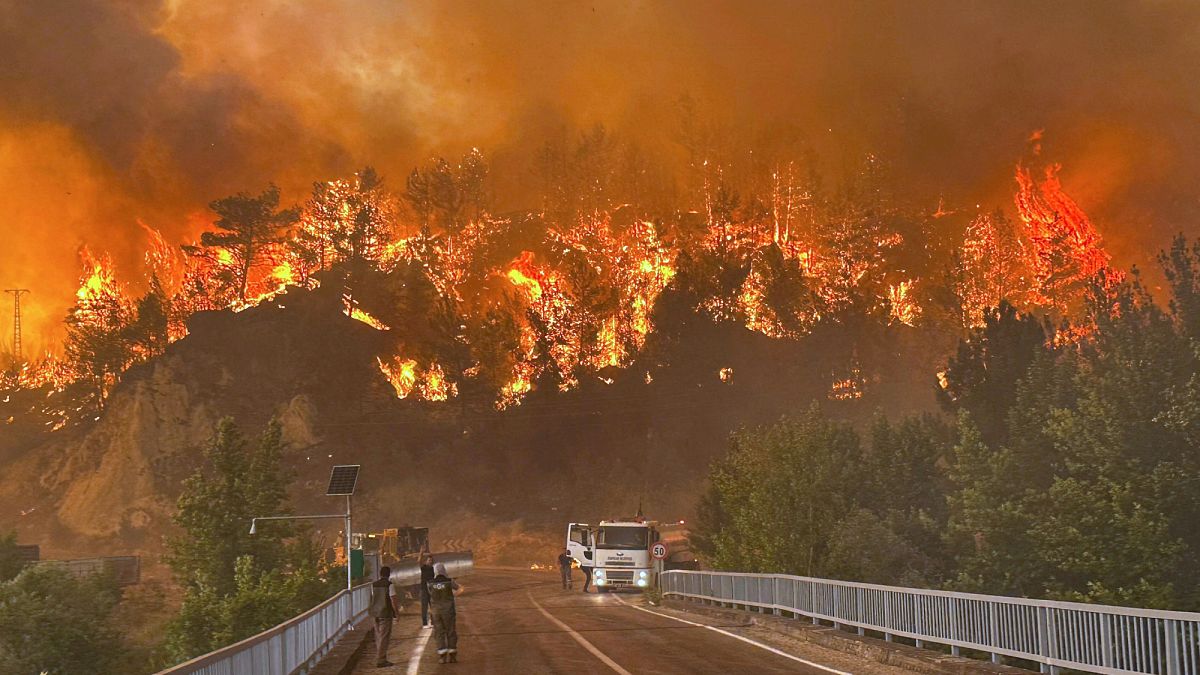

Amidst the backdrop of a world frequently challenged by natural disasters and geopolitical tensions, recent events have underscored the resilience of communities and the importance of international cooperation. This summary encapsulates several noteworthy incidents across Turkey, Syria, Cyprus, Southeast Asia, and Russia, highlighting the concerted efforts of local and global entities in addressing challenges and extending aid where crucial.
In Turkey’s Eskisehir province, shifting winds during firefighting efforts led to the tragic loss of ten brave individuals, including volunteers, battling wildfires. These fires are part of a troubling trend exacerbated by extreme weather conditions, a stark reminder of the urgent need for effective climate change mitigation strategies. Despite the devastating loss, Turkish officials and international firefighters come together, underscoring the collaborative spirit needed to manage increasingly volatile fire seasons.
Meanwhile, in northern Syria, an explosion in the town of Maarat Misrin claimed at least six lives, leaving many injured. The White Helmets, Syria’s civil defense force, played a pivotal role in the aftermath, managing the crisis with speed and care. Their actions not only provided immediate relief but also demonstrated the critical role of humanitarian organizations in conflict-affected regions. Such incidents remind us of the importance of sustained support for communities recovering from strife.
In Cyprus, the largest wildfires in over fifty years have engulfed approximately 100 square kilometers of land. The discovery of two deceased individuals in a burned-out vehicle has brought the human cost of this environmental disaster into sharp focus. Cypriot authorities, supported by the European Union and neighboring countries, are deploying resources to control the blazes. This event underscores how transnational cooperation is crucial in addressing the shared impacts of climate emergencies.
Beyond these environmental challenges, geopolitical tensions have arisen as deadly clashes erupted along the contentious Thailand-Cambodia border. With a death toll of at least 12, these conflicts have necessitated evacuation and emergency response efforts. Both nations have leveraged diplomatic channels, with ASEAN playing a mediating role, to de-escalate tensions and restore peace. This situation reflects the complexity of regional disputes and the role of international organizations in fostering dialogue and stability.
Tragedy also struck in Russia’s Far East, where an Angara Airlines passenger plane crashed, leaving all 49 individuals on board feared deceased. The incident has prompted a robust response from Russian authorities and search-and-rescue teams. As they sift through the wreckage, the joint efforts of local responders and international aviation safety experts once again highlight global solidarity in the face of tragedy, striving to prevent future occurrences through detailed investigation and improved safety measures.
At a time when challenges in Turkey, Syria, Cyprus, Southeast Asia, and Russia demand attention, the world is reminded of our interconnectedness. In confronting both human-made and natural adversities, communities and nations continue to demonstrate resilience, leaning on global cooperation to fortify our collective future. Through sustained dialogue, robust humanitarian initiatives, and committed environmental policies, a path towards a safer, more unified world is continually being paved.
Source: {link}
